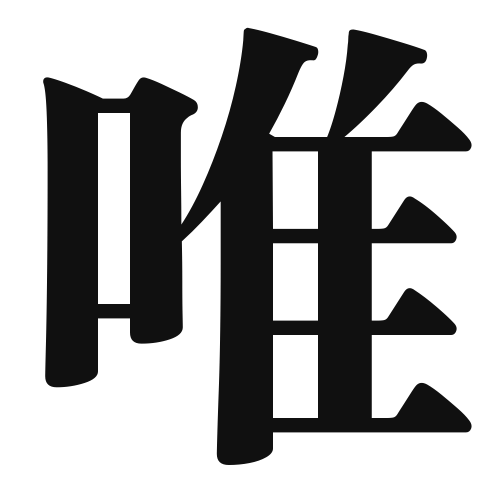1. Overview of Meaning
The kanji “唯” (yui) primarily means “only” or “just.” It conveys a sense of exclusivity or singularity, often used to emphasize that something is the sole instance or the only option available.
2. Formation and Radical
Formation of the Kanji: The kanji “唯” is classified as a phonetic-ideographic character (形声文字). It combines the meaning of “only” with phonetic elements to convey its sound.
Radical: The radical for “唯” is “口” (kuchi), which means “mouth.” This radical often relates to speech or expression, aligning with the kanji’s usage in communication.
3. Examples of Usage
Common Words and Phrases: Some frequently used words that include “唯” are “唯我独尊” (yiga dokuzon), meaning “only I am honored,” and “唯々” (yuiyui), meaning “solely” or “merely.”
Example Sentences in Daily Conversation:
- 「これは唯の冗談です。」(Kore wa yui no joudan desu.) – “This is just a joke.”
- 「唯、あなたの意見が大切です。」(Yui, anata no iken ga taisetsu desu.) – “Only your opinion matters.”
4. Synonyms and Antonyms
Similar Kanji: A similar kanji is “単” (tan), which also means “single” or “simple,” but it emphasizes simplicity rather than exclusivity.
Opposite Kanji: An antonym is “多” (ta), meaning “many” or “multiple,” which conveys the idea of plurality as opposed to singularity.
5. Cultural and Historical Background
Relation to Japanese Culture: The kanji “唯” is often used in philosophical and literary contexts, reflecting the importance of individuality and uniqueness in Japanese thought.
Proverbs and Idioms: One common saying is “唯我独尊” (yiga dokuzon), which emphasizes the idea of self-importance and uniqueness, often used in discussions about self-identity and personal value.
